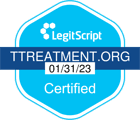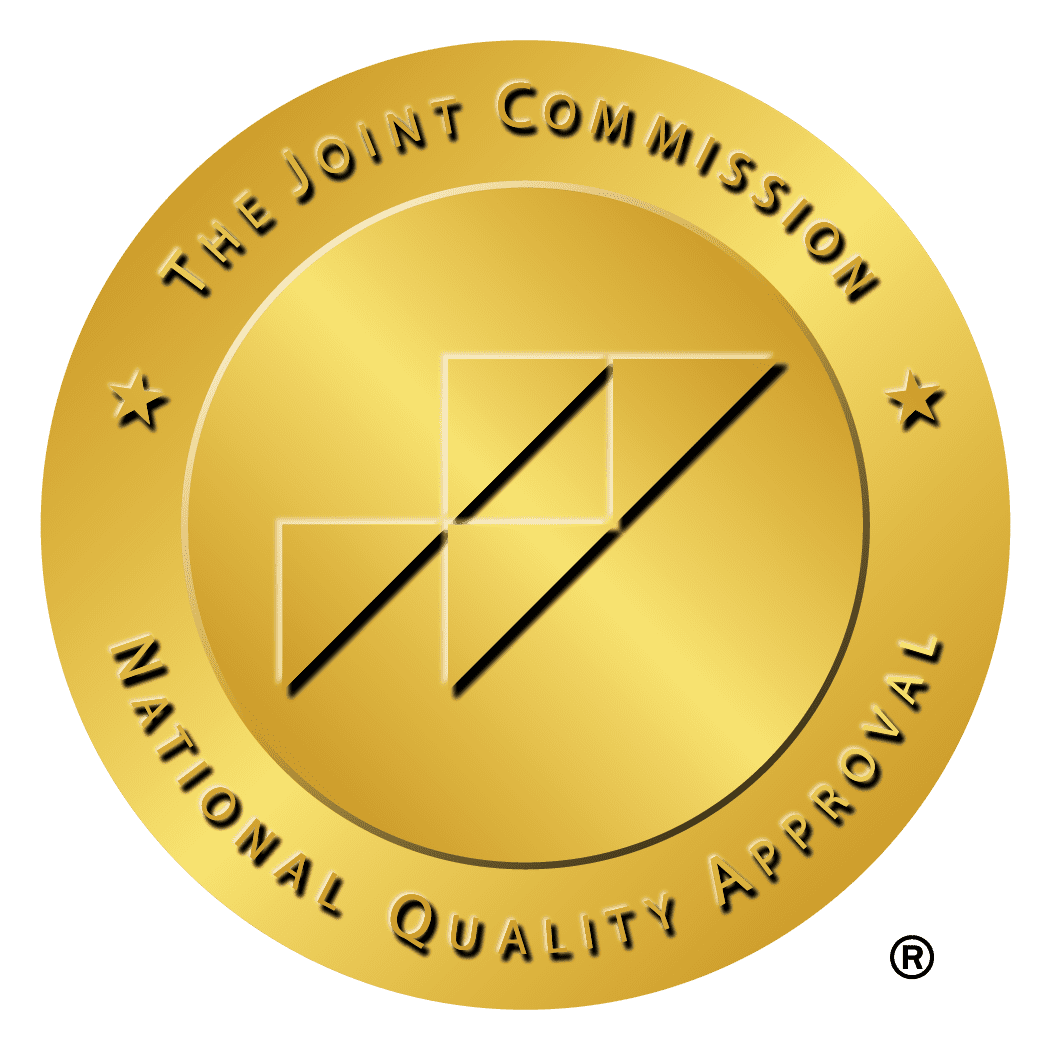Alcoholism or alcohol use disorder may be something you hear about often, but what exactly is alcoholism?
Alcoholism is a chronic disease in which individuals have a preoccupation with alcohol that inhibits them to control their drinking due to an alcohol dependence. As alcoholism progresses, the dependency grows further, often continuing use even when drinking causes significant problems in one’s life.
Even though nearly 15 million people in the United States suffer from alcohol use disorder, alcohol is often ever-present in social settings and has become a very normal part of life for many. Casual drinking culture may seem like no big deal, but the reality is that alcohol can turn into dependence for many, making it more dangerous than one may believe it to be.
We want to discuss the truth about alcohol and WHY it is so dangerous as well as how you can take necessary steps to prevent dependency or heal from alcohol abuse disorders with the proper resources.
Clinically Defining Alcohol Use Disorders
The DSM-5 is The Diagnostic and Statistical Manual of Mental Disorders which provides standard criteria for classifying mental disorders. According to the DSM-5, there are eleven symptoms of alcohol use disorder categorized from mild to severe. Mild cases of alcohol use disorder are present when individuals possess 2-3 symptoms, moderate cases having 4-5, and severe cases having 6 or more. These symptoms laid out by the DSM are:
- Alcohol is often taken in larger amounts or over a longer period than was intended — Do you drink more than you mean to?
- There is a persistent desire or unsuccessful efforts to cut down or control alcohol use — Do you want to stop, but can’t?
- A great deal of time is spent in activities necessary to obtain alcohol, use alcohol, or recover from its effects — Is drinking taking over your life?
- Craving, or a strong desire or urge to use alcohol — If you can’t drink, are you thinking about drinking?
- Recurrent alcohol use results in a failure to fulfill major role obligations at work, school, or home — Is your drinking getting in the way of day-to-day activities?
- Continued alcohol use despite having persistent or recurrent social or interpersonal problems caused or exacerbated by the effects of alcohol — Is drinking getting in the way of your relationships?
- Important social, occupational, or recreational activities are given up or reduced because of alcohol use — Are you sitting things out because of alcohol?
- Recurrent alcohol use in situations in which it is physically hazardous — Are you drinking in risky settings, or doing risky things while drinking?
- Alcohol use is continued despite knowledge of having a persistent or recurrent physical or psychological problem that is likely to have been caused or exacerbated by alcohol — Do you know drinking isn’t good for you, but you do it anyway?
- Tolerance, as defined by either of the following: a need for markedly increased amounts of alcohol to achieve intoxication or desired effect, or a markedly diminished effect with continued use of the same amount of alcohol — Do you need to drink more than you used to?
- Withdrawal, as manifested by either of the following: the characteristic withdrawal syndrome for alcohol, or alcohol (or a closely related substance, such as a benzodiazepine) is taken to relieve or avoid alcohol withdrawal symptoms — Do you feel it when you stop drinking?
Learning about how to diagnose alcohol use disorders is an important step in understanding if your relationship with alcohol is healthy or not.
Facts vs. Fiction
When it comes to understanding alcohol and what is true or not, we want you to have all the facts. While some of these myths are commonly repeated, they are not based on truth and you must understand what is real or not.
Myth: Alcohol isn’t harmful because it is legal.
Fact: Alcohol is a depressant of the nervous system; the effects of alcohol on the brain can cause long-term brain damage.
Depressants slow down the messages between the brain and the body which subsequently affects concentration and coordination. While short-term a person may feel more relaxed, when alcohol is taken in large doses, people may feel drowsy, disoriented, experience vomiting, unconsciousness, and even death. When depressants are consistently consumed, your brain may begin producing less of the hormones it needs to function properly which creates an alcohol dependence. Long-term alcohol usage may result in cardiovascular health issues that increase the risk of stroke, brain shrinkage, poor circulation to the brain, dementia, nutritional deficiencies, mental health issues, or changes in mood or personality.
Myth: It is safe to stop using alcohol at home if you have withdrawal.
Fact: Alcohol abstaining usually requires a detox.
Withdrawal symptoms from alcohol often take around 1-2 weeks to subside. Since alcohol is a depressant, your brain eventually stops producing certain chemicals that it receives from alcohol which is what creates dependency. When you stop drinking, it takes time for your body to adjust and you may experience withdrawal symptoms such as headache, fever, nausea, irregular heartbeat, and hallucinations. Withdrawals may need guidance from a health professional to help detox your body in a healthy way.
Factors of Addiction
Alcohol can be more dangerous for some individuals than it can be for others. Some people are more susceptible to alcohol use disorder and addiction has many factors that play into it ranging from upbringing, economic status, life events, genetics, and sociocultural factors. The Genetic Model of Addiction suggests that addiction is more likely to occur when one has specific genes, which is why addiction often runs in families.
The Sociocultural Model of Addiction suggests that the cultural standards within a society may have direct impacts on the likelihood of addiction. We have already mentioned that there is a large drinking culture in America that has normalized and tolerated getting drinks regularly in a casual way. Many Americans truly enjoy drinking and find it very entertaining but this pre-established standard may make it more difficult to realize a once healthy relationship with alcohol has turned sour in a society that generally accepts alcohol use.
Culture and society also plays a role in impoverished areas where the social structure that is present may prevent individuals within the community from opportunities to advance in life. Lack of opportunities can result in a lack of basic safety, higher crime rates, and day-to-day survival becoming more challenging. These factors result in higher instances of turning to substances as a means of coping. These circumstances allow addiction to flourish and therefore work as a form of escapism.
Daily Impacts on Alcohol
Since alcohol impacts your nervous system, your-day-to-day life is sure to be impacted by alcohol consumption. You may think you are living just fine and perhaps you’re great at concealing your drinking, but there are a multitude of effects that alcohol can have on a person. This is especially true if your job requires you to do manual labor. Even if your work is not labor intensive, simply commuting and driving to work can be impacted by your drinking behaviors. You may find yourself struggling and in a situation where you lose your license, lose your job, begin having less control over your body and coordination (balance, speech, vision, reaction time, etc.), injuring or even killing someone or yourself, and facing jail time.
Dangers in Children Who Experience Alcohol-Abusing Parents
While you may not see that your drinking habits are harmful to anyone but yourself, this simply is not true. Alcohol abuse is particularly harmful towards children who are raised in households where a parent is struggling with alcohol use disorder. When children grow up without a healthy model of alcohol usage, they may pick up on bad coping mechanisms and grow up far sooner than they should. When a parent is deemed unreliable because of their drinking issues, the child may feel neglected and therefore must step in as the role of a parent for themselves and/or their siblings. Since the parents set an example for the children and there is a genetic predisposition to alcohol-abuse, it is very common for children who grow up in alcoholic households to become alcoholics themselves. In some cases, legal situations are required when this becomes an issue such as child neglect, underage drinking, or DUI.
Effects on Teenagers Who Drink at an Early Age
When teenagers begin abusing alcohol at an early age there are severe effects on development. Alcohol directly impacts your brain and beginning this pattern from adolescence can impact memory, the ability to learn, and verbal skills all while creating an alcohol dependence. When teenagers turn to alcohol so early on in life there is generally something that must be addressed in their personal life, meaning that teenagers who abuse alcohol are also more likely to be depressed. Starting young can often turn into a worse situation down the road with irreversible consequences. Not only this, but abusing alcohol can prevent teenagers from hitting valuable milestones like completing school, which ultimately impacts the future trajectory of their life.
Alcohol and Its Effects on Pregnancy
Drinking alcohol while pregnant is widely known as a major no-no but it is especially important in the first three months of pregnancy when babies are developing. Since many women do not know they are pregnant until about the 4-6 week mark, this means babies can be exposed to alcohol in the first trimester without the mother realizing they are pregnant in the first place. This is very dangerous since the first trimester can be the most damaging time to drink in terms of the baby’s development, putting the baby at risk for developing Fetal Alcohol Syndrome (FAS).
FAS can disrupt the central nervous system and also has a direct impact on facial features, growth defects, low birth weights and problems with learning, memory, attention span, communication, vision, or hearing. FAS is particularly nerve-wracking since mothers are likely not aware that they have posed a threat to their baby if they do not know they are pregnant, making this another danger of drinking.
What Treatments Work Best for Alcoholism
If you have found yourself relating to some of the behaviors listed in this post, you may be asking yourself what you can do about it. While alcohol is a chronic condition that is to be treated as such, there are a multitude of ways to cope and begin the healing process of a sober lifestyle. Living sober is possible and we commend you for looking into options to begin that process.
Cognitive Behavioral Therapy
Cognitive Behavioral Therapy helps identify self-defeating thoughts and behaviors which may often drive addiction. It helps the individual to explore patterns harmful thought patterns and actively seek alternate thinking.
Mindfulness
Mindfulness recovery approaches helps those in recovery from addiction use mindful awareness to manage automatic and unhelpful reactions to triggers. Recent research has demonstrated an increase in the individual’s ability to remain in recovery through the use of these mindfulness techniques in daily life.
Person-Centered Therapy
Person-Centered Therapy is a form of therapy that is individualized upon past experiences and personal goals. A person-centered approach program addresses your unique concerns and works with you to develop a program that fits with your schedule and your goals.
Trauma-Informed Therapy
Substance abuse and addiction frequently develop as a coping mechanism for unresolved trauma. Everyone experiences trauma differently, which is why high-quality substance use treatment should be centered around individualized, trauma-informed healing.
Group Therapy
Recovery requires support. Finding support among a group that has faced similar challenges can build a community to lean upon during times of struggle. Peer support can empathize with your struggles and help you overcome challenges during recovery. Each client will benefit from the guidance of someone who is a little further down the path of recovery.
How To Find Local Support Groups for Alcohol Addiction
If you’re looking for local support in your area for alcohol addiction there are several resources at your disposal. Likewise, we at Transcendence Treatment Center are also here and always available to you as a resource in your recovery process.
Alcoholics Anonymous one of the most infamous groups to help heal from alcohol; its primary purpose being to help alcoholics to achieve sobriety. On their website you can enter your zipcode to find an A.A. group near you.
NA is a nonprofit fellowship or society of men and women for whom drugs had become a major problem. Individuals who attend NA meetings are recovering addicts who meet regularly to help each other stay clean and there are local chapters throughout the country.
Local Churches
Some local churches offer recovery groups — doing Google searches to find recovery groups in your area can make the world of difference in your recovery process.
—
If you are interested in learning more about addiction recovery and would like to speak to someone today, please do not hesitate to reach out to a member at Transcendence Treatment Center.
For help transcending into a new life call: 854-222-3773.



